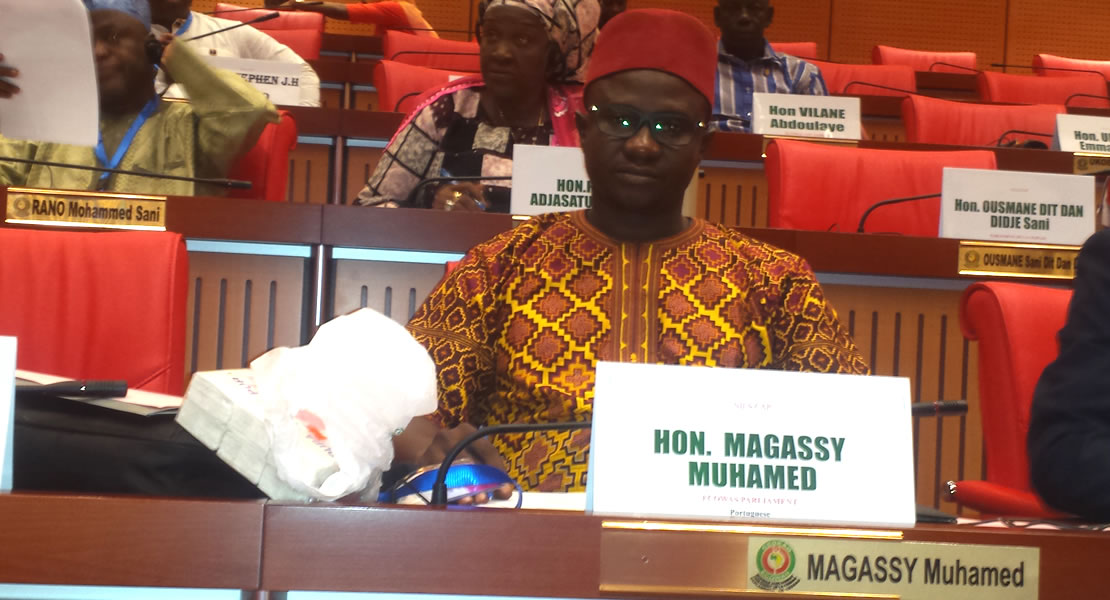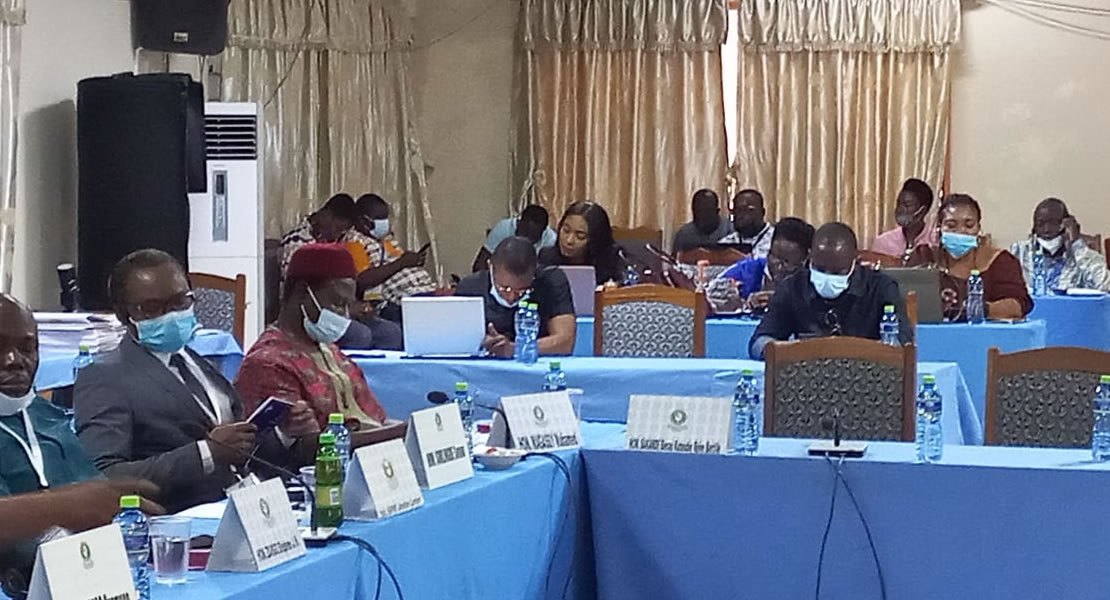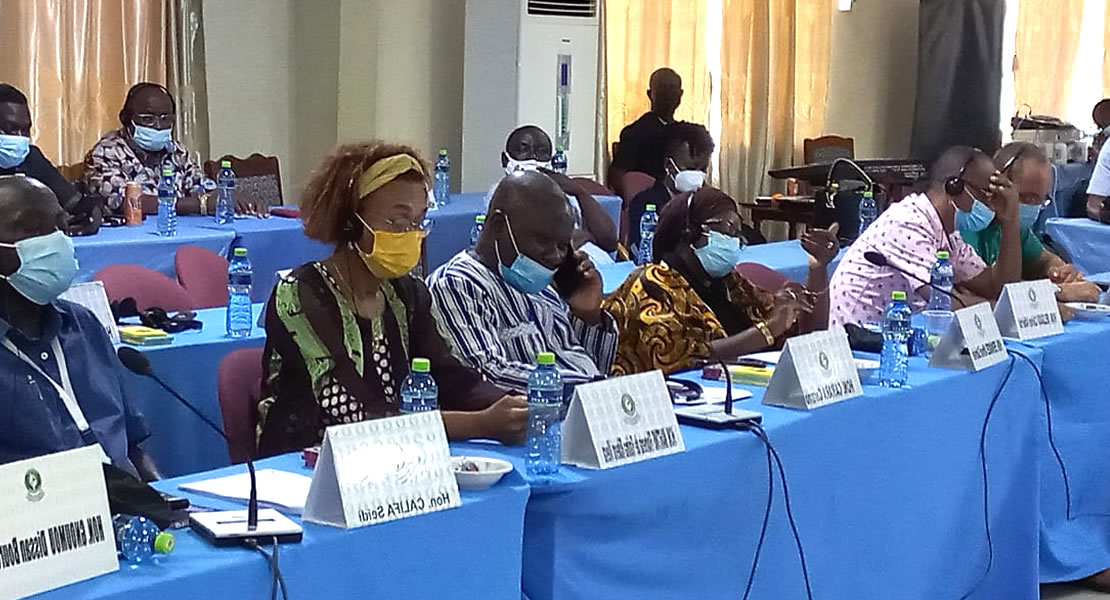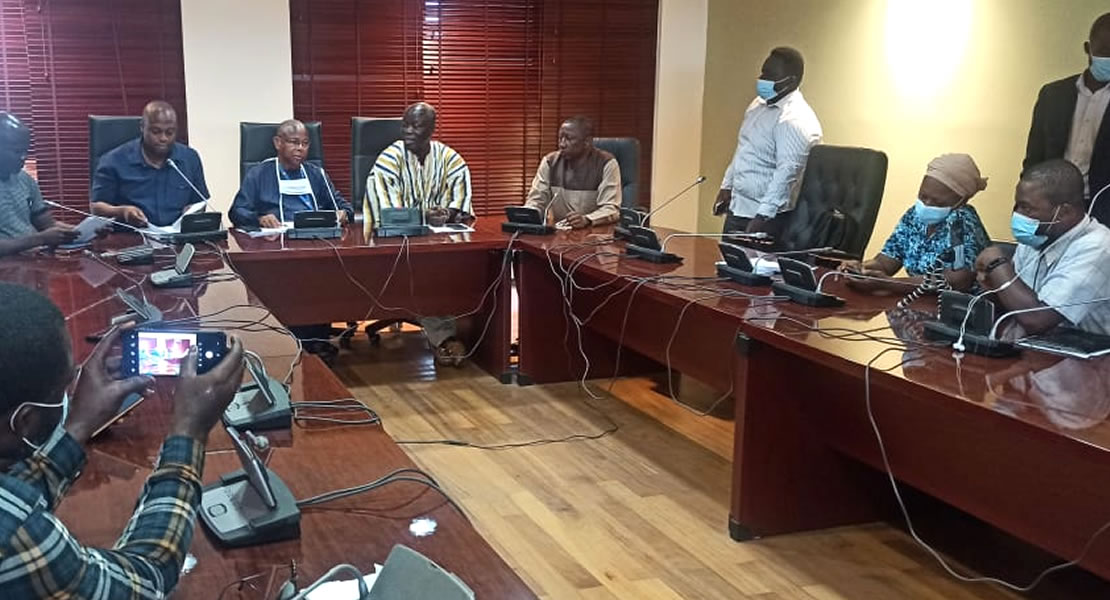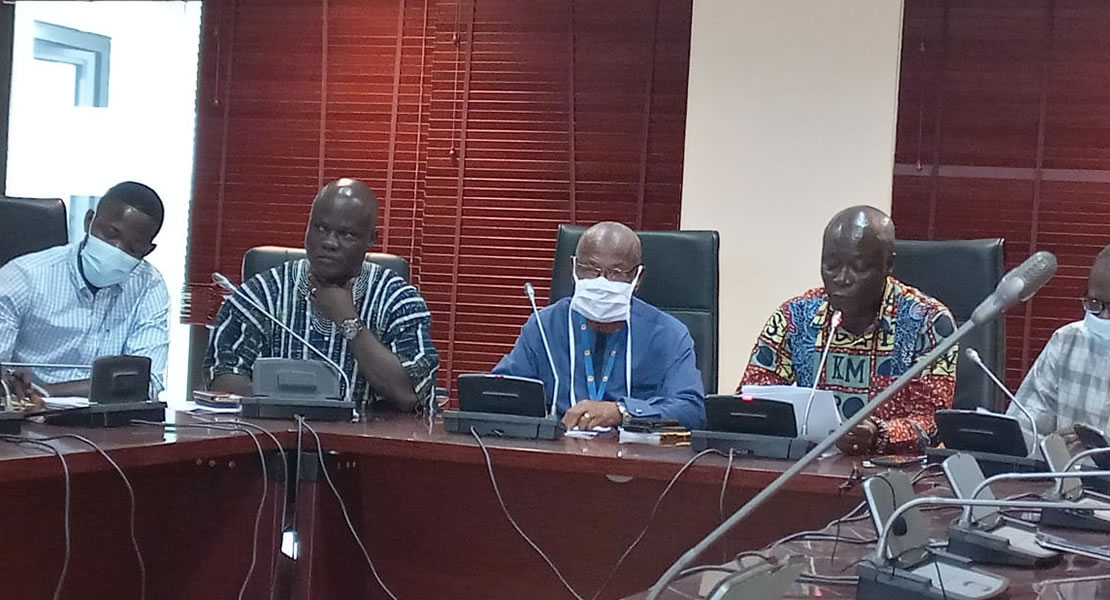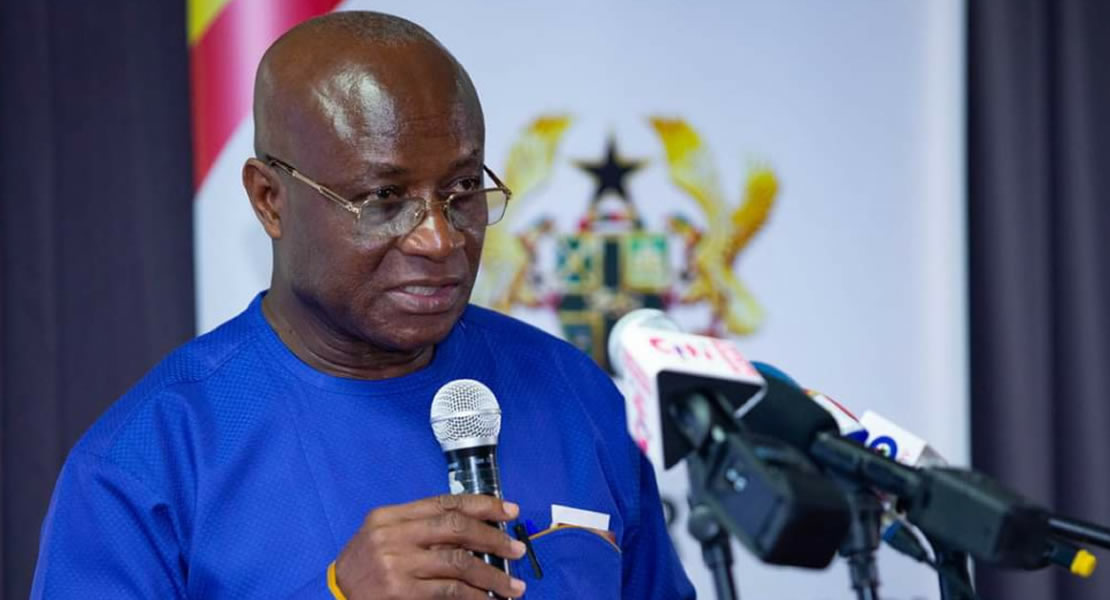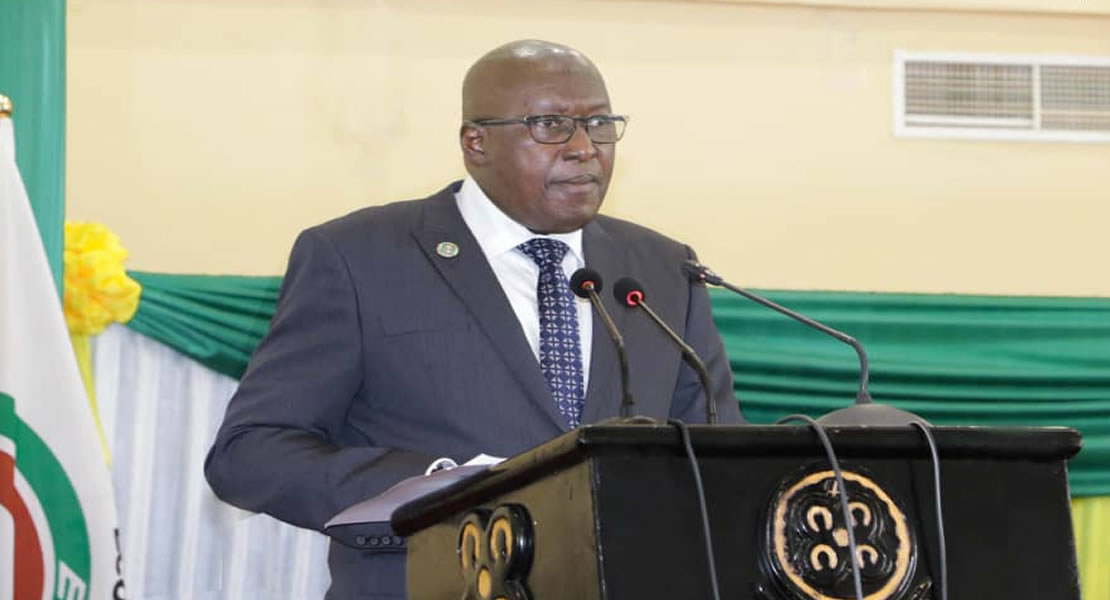As part of deepening Ghana’s democratic governance, the Ministry of Parliamentary Affairs (MoPA) has interacted with professional practicing journalist and their lectures in the academia as part of its strategic objective.
The engagement was on the theme, ‘Economic Revitalization amid Covid-19 Pandemic: The Media’s Agenda’.
Minister of Parliamentary Affairs, Osei Kyei-Mensah-Bonsu said the media continues to play very significant roles in the sustenance of the nation’s democracy and Ghana has become a model of democracy for our nations in Africa and beyond, the media’s contribution has been phenomenal towards this feat.
“I must acknowledge you for shaping Ghana’s democracy thus far. You are increasingly becoming the cornerstone of our democracy and real partner in our quest for sustainable development. We commend your effort.”.
The strategic role of the media in achieving national development in any society cannot be downplayed. This is so because beyond the physical requirements of basic needs of man which includes food and shelter, man needs to communicate with people in his or her neighbourhood to feel complete and fulfilled, he said.
Indeed article 162 (1) of the Constitution states unequivocally that ‘freedom and independence of the media are hereby guaranteed’. Clause 5 of the same article states that “all agencies of the mass media shall at all times be free to uphold the principles, provisions and objectives of this Constitution, and shall uphold the responsibility and accountability of the government to the people of Ghana”.
To the extent that these principles, provisions and objectives of the Constitution aim at a well-governed and developed state, the media has a cardinal responsibility in supporting the nurturing of not only procedural democracy, but also the quality of public policies and programmes that would rejuvenate the economy even in period of national crisis such as covid-19 pandemic.
The media is regarded as one of the custodians of democracy as they perform the following functions: fostering of public debate and political engagement, acting as a public watchdog to check abuse of power, redistribute power and political influence, and providing mechanism through which democracy can operate.
Again, the economies of many countries including Ghana have incurred adverse economic impacts due to the global pandemic; each country is impacted in ways distinctive to its circumstances. Unfortunately, the economic impacts of COVID-19 in Ghana have been severe. The nature of Ghana’s economy has made it particularly vulnerable to global economic volatilities and as consequence; the Covid-19 pandemic has had a devastating effect on a “significant proportion of our population”.
As a result of this, Government has strategized to cushion the citizenry to alleviate their plights hence the introduction of free water, electricity subsidies and many other interventions during the heat of the pandemic.
Again, in the midst of the pandemic, the government introduced the Ghana Cares Obaatanpa Programme to help rejuvenate the Small, Micro and Medium Enterprises (SMMEs) to reduce the effect of the pandemic on their operations.
The media is important for human development, bringing information on health, education and other sectors to the remotest part of the country. But as experience has shown, the independence of the media can be fragile and easily compromised.
To support development, the media need the right environment in terms of freedoms, capacities, and checks and balances. As important providers of information, the media are more likely to promote better commercial and industrial growth and development especially when producing good-quality reportage and having a broader reach. Media help create awareness and develop consensus on important national and international development issues. It also helps the citizenry to understand the various obstacles in the process of development.
A formidable media can keep a check on public policy by throwing a spotlight on government actions and inactions. For citizens to voice their diverse opinions on governance issues and help build consensus and trust there is the need for the media to serve as a platform for the citizenry express critique public policies and programmes.
A plural media improves government responsiveness by giving a voice to the vulnerable. There is a healthy nexus between media growth and government approachability. A media that gives voice to the vulnerable can create informed citizens that can better monitor the actions of politicians and use this information in their voting decisions.
Mr. Osei-Kyei urged the media to support efforts at revitalizing the economy by providing policy elites with varied perspectives and reliable information from which decisions could be made. The media is also required to enhance the political coordination in the development of sound economic policy.
The media has a responsibility to support government translate good policies into development outcomes while adhering to the ethics, norms and codes of your profession.
He said it is his hope that the interaction would be fruitful and that ideas generated would enhance the quality of our public discourse while improving the quality of information needed for the making of policies and programmes for national development.
Kwaku Sakyi-Danso/Ghanamps.com
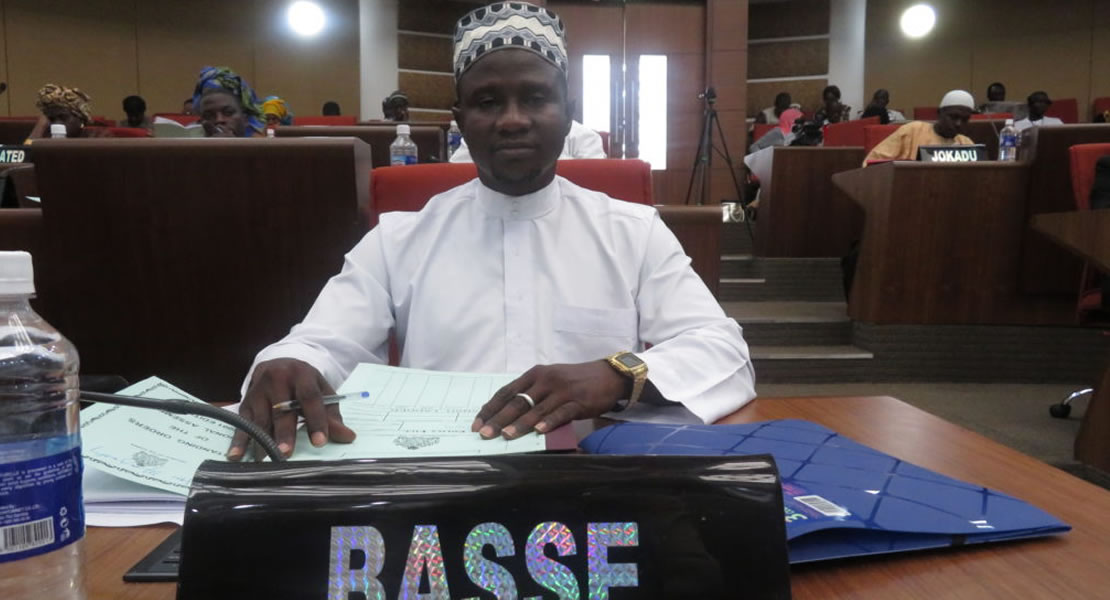
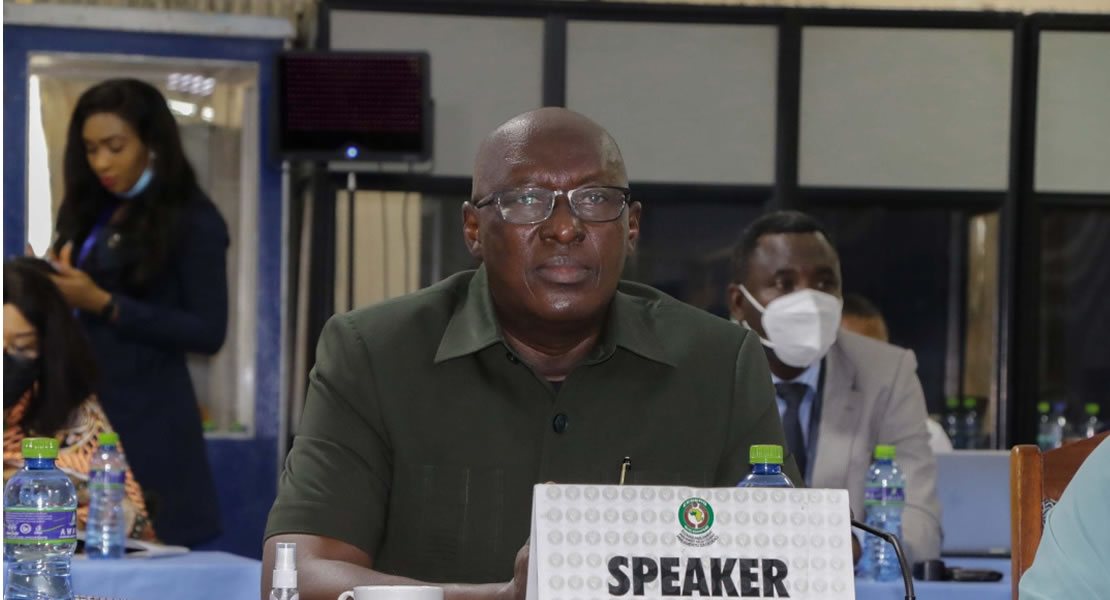
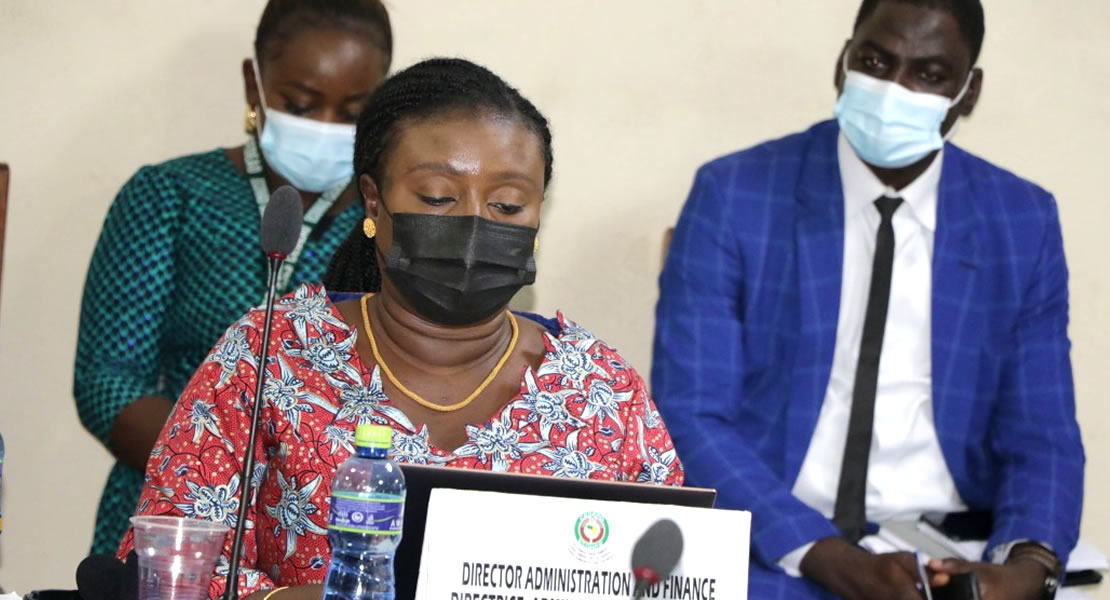 “That is when, ECOWAS institutions started working including the judiciary, the parliament leads and the others follow; I am very serious about this, the higher authorities in ECOWAS told me they have to copy us because we see the parliament moving around”.
“That is when, ECOWAS institutions started working including the judiciary, the parliament leads and the others follow; I am very serious about this, the higher authorities in ECOWAS told me they have to copy us because we see the parliament moving around”.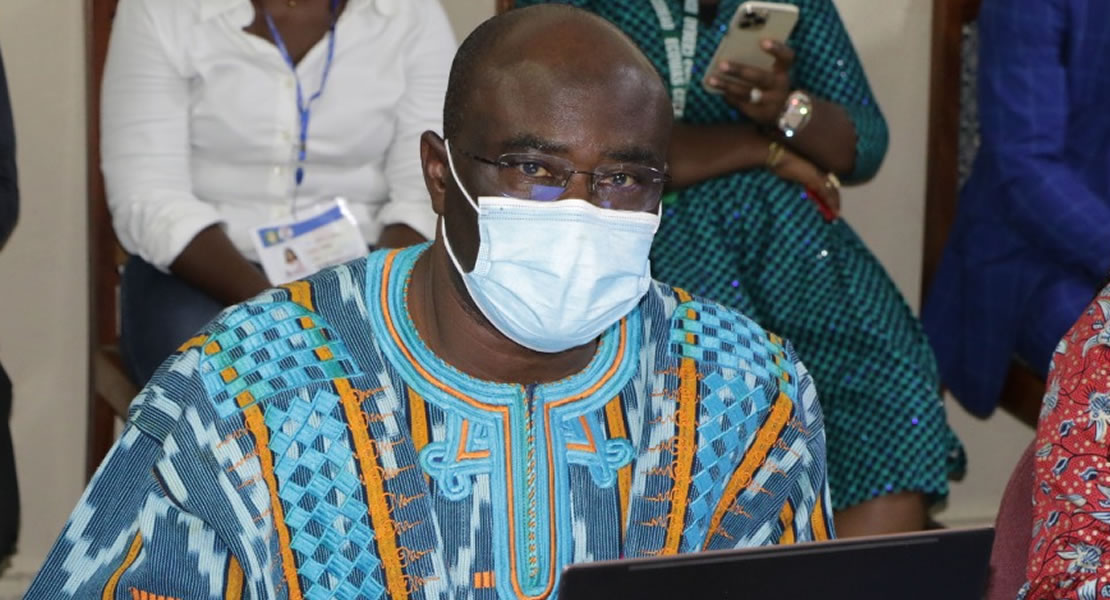 Leader of the Ghanaian delegation to the Community Parliament, Alexander Kwamena Afenyo Markin on behalf of his colleagues presented a sculpture of the Speaker as a gift, when he hosted them to a dinner at the end of the extraordinary meeting held in Winneba, Ghana.
Leader of the Ghanaian delegation to the Community Parliament, Alexander Kwamena Afenyo Markin on behalf of his colleagues presented a sculpture of the Speaker as a gift, when he hosted them to a dinner at the end of the extraordinary meeting held in Winneba, Ghana.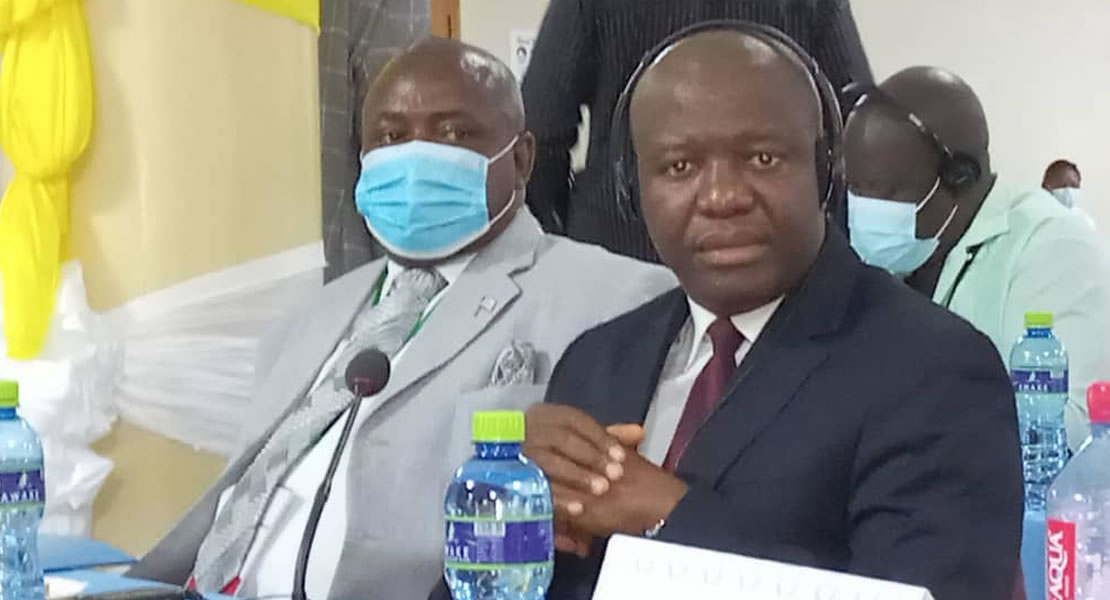
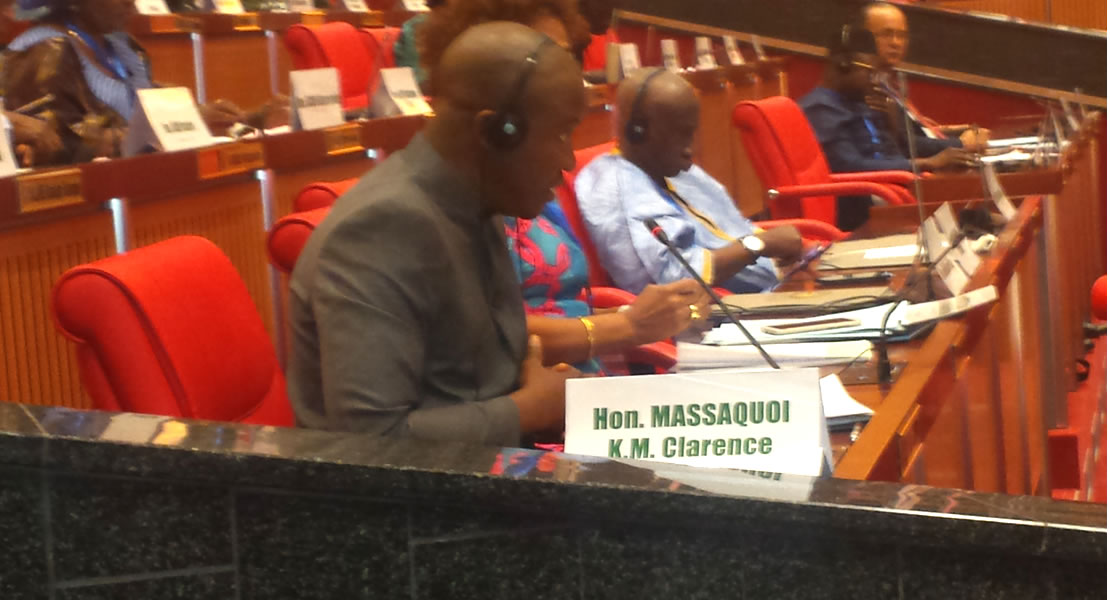
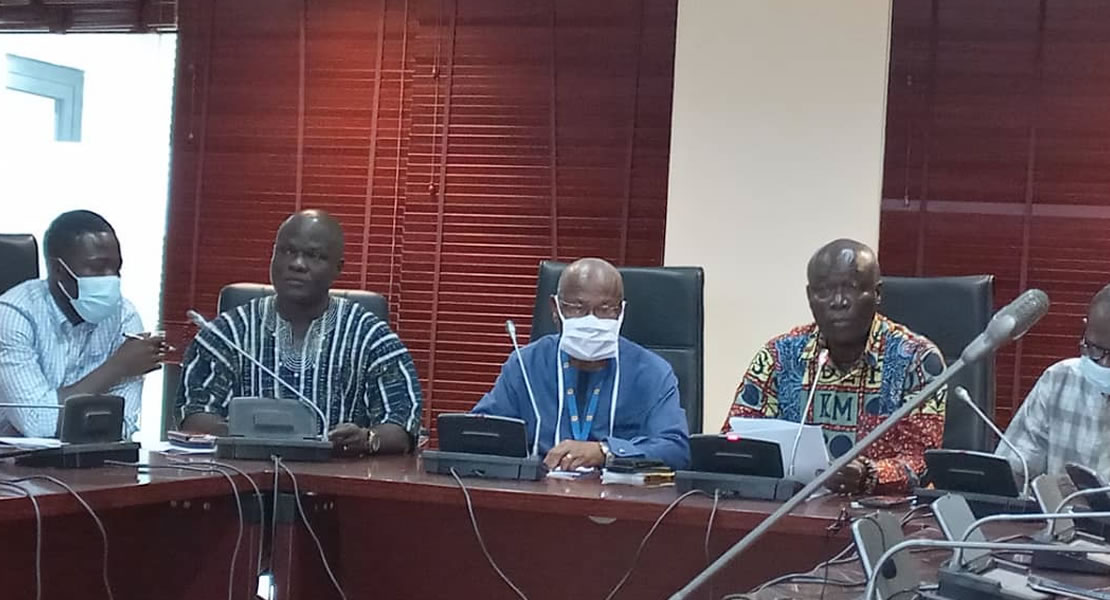
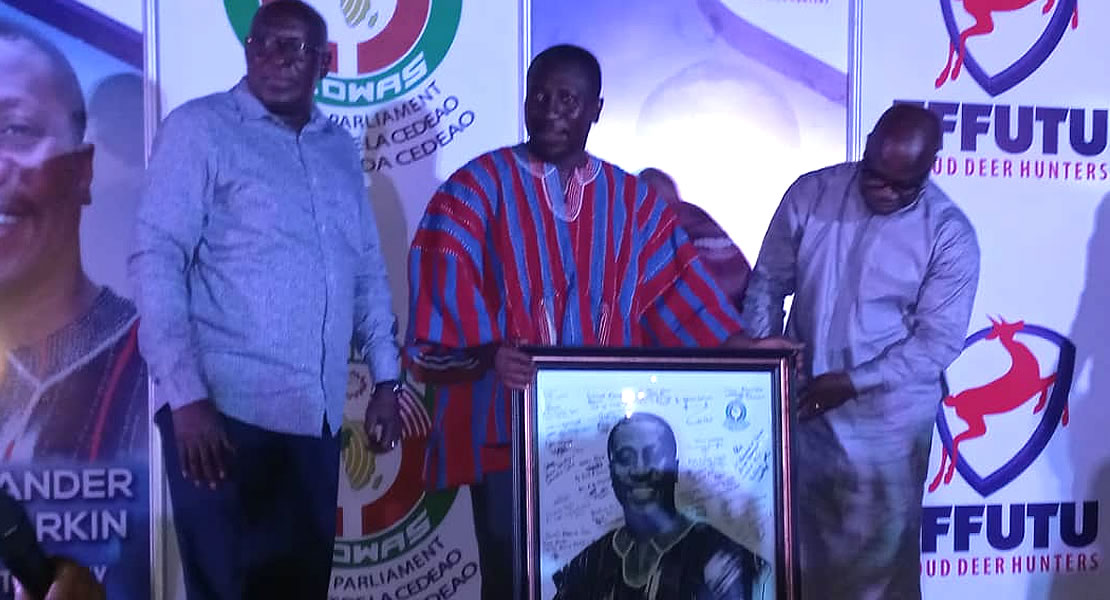
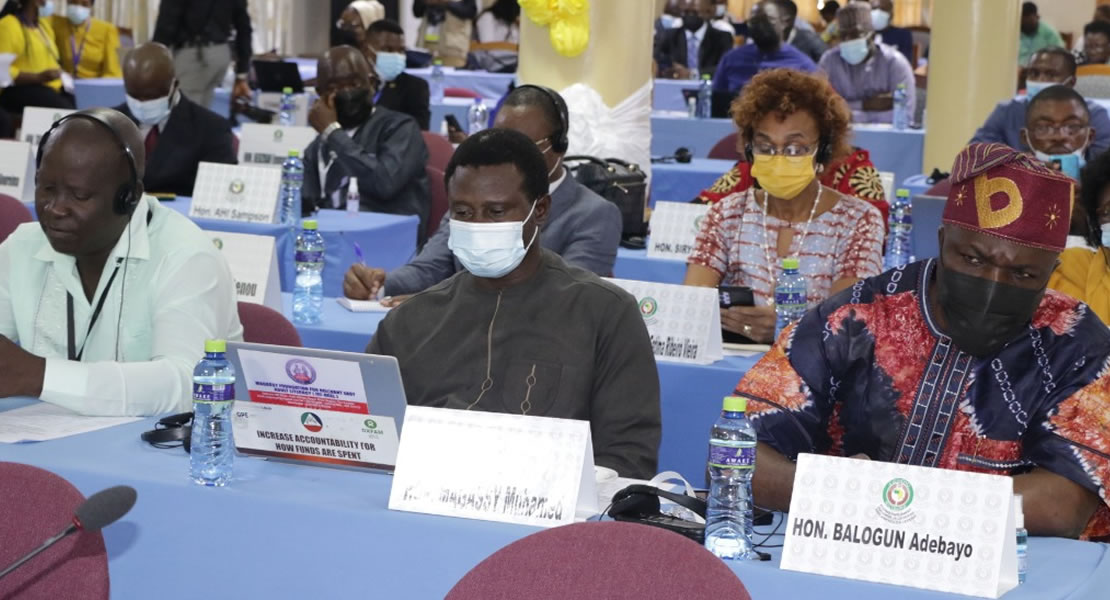
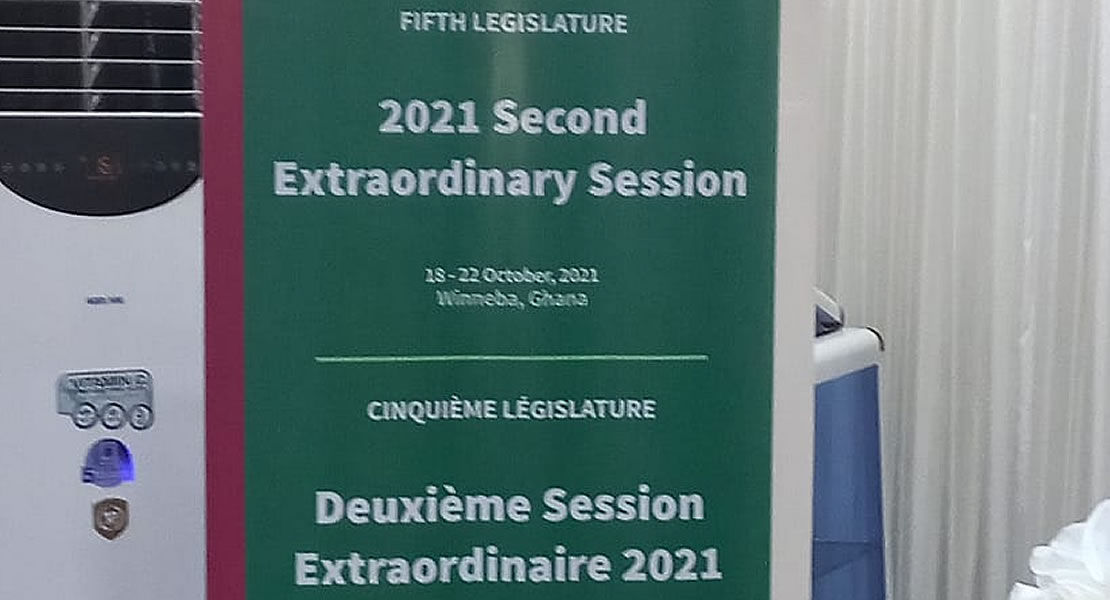 who were very energetic and wanted to contribute.
who were very energetic and wanted to contribute.